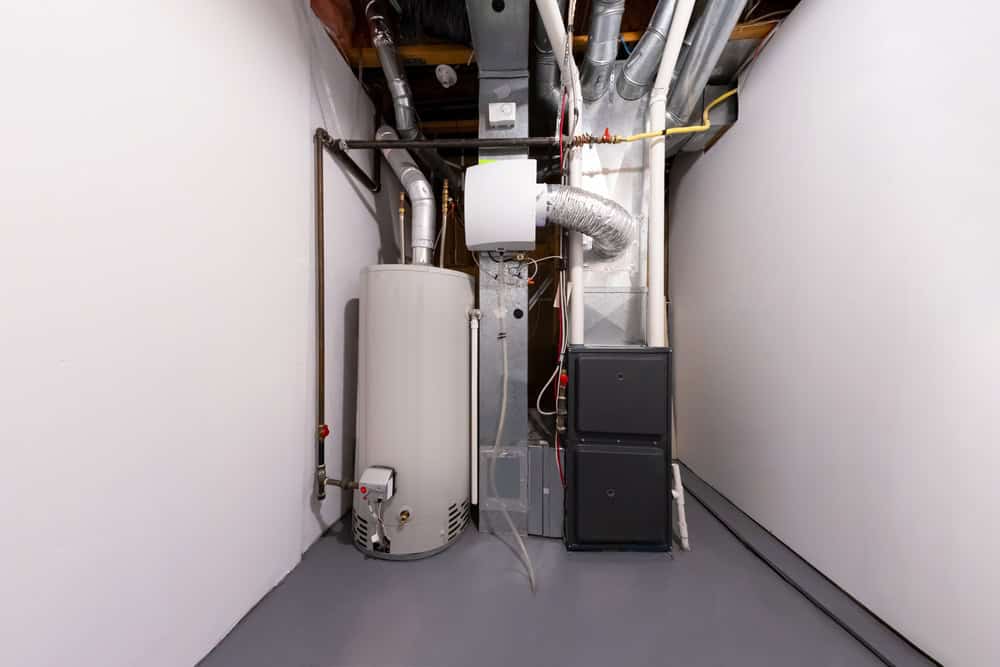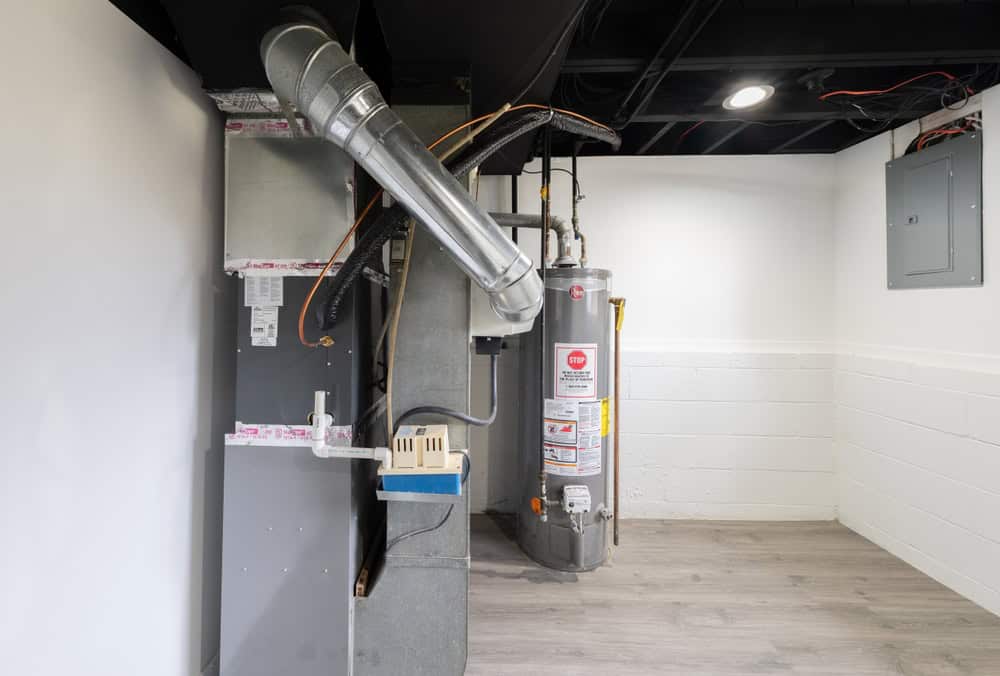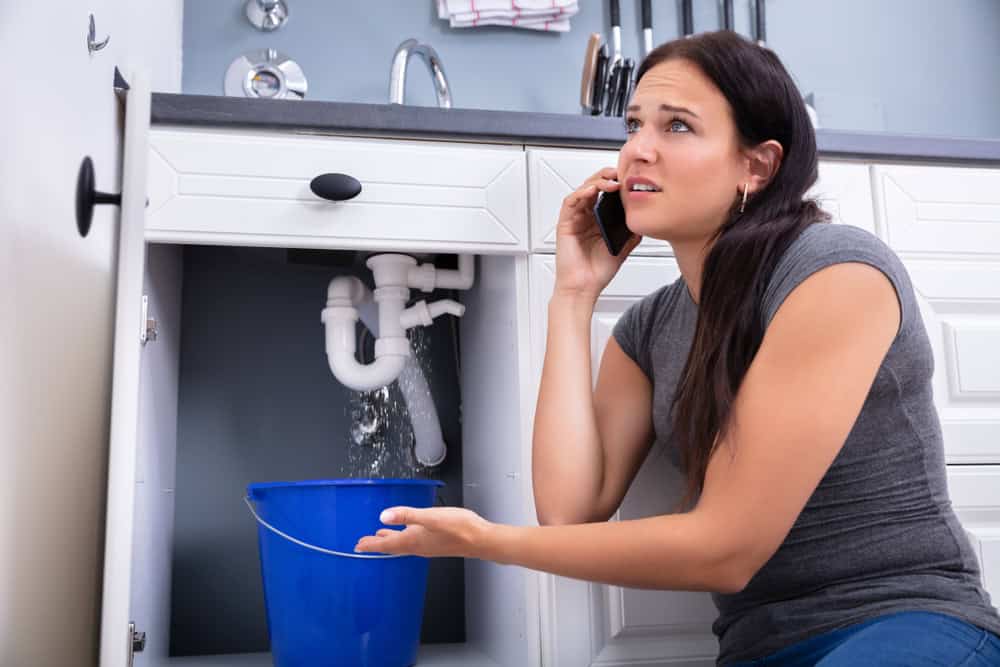Summary:
True Plumbing Emergencies That Require Immediate Action
Not every plumbing problem is an emergency, but certain situations demand immediate professional attention. These are the scenarios where waiting could lead to serious property damage, health risks, or safety hazards.
The key is understanding that true emergencies involve either immediate danger to your family or the potential for significant property damage. When water is actively flowing where it shouldn’t be, when you smell gas, or when sewage is backing up into your home, you’re dealing with a situation that can’t wait.
Burst Pipes and Major Water Leaks
A burst pipe is perhaps the most dramatic plumbing emergency you can face. Water can pour out at a rate of several gallons per minute, quickly flooding your home and causing extensive damage to floors, walls, and personal belongings.
The signs aren’t always obvious. Sometimes you’ll hear the unmistakable sound of rushing water inside your walls. Other times, you might notice water stains spreading across your ceiling or walls, indicating a pipe has failed behind the drywall. In winter, frozen pipes are particularly vulnerable to bursting when temperatures drop suddenly.
Your first response should be to locate and shut off your main water valve immediately. This single action can prevent thousands of gallons from flooding your home while you wait for professional help. Remove any valuables from the affected area and start documenting the damage for insurance purposes.
Don’t attempt to repair a burst pipe yourself. The water pressure in your home’s plumbing system requires proper tools and expertise to handle safely. We have the equipment to not only stop the immediate leak but also assess whether other pipes in your system might be at risk.
Sewer Line Backups and Sewage Problems
A burst pipe is perhaps the most dramatic plumbing emergency you can face. Water can pour out at a rate of several gallons per minute, quickly flooding your home and causing extensive damage to floors, walls, and personal belongings.
The signs aren’t always obvious. Sometimes you’ll hear the unmistakable sound of rushing water inside your walls. Other times, you might notice water stains spreading across your ceiling or walls, indicating a pipe has failed behind the drywall. In winter, frozen pipes are particularly vulnerable to bursting when temperatures drop suddenly.
Your first response should be to locate and shut off your main water valve immediately. This single action can prevent thousands of gallons from flooding your home while you wait for professional help. Remove any valuables from the affected area and start documenting the damage for insurance purposes.
Don’t attempt to repair a burst pipe yourself. The water pressure in your home’s plumbing system requires proper tools and expertise to handle safely. We have the equipment to not only stop the immediate leak but also assess whether other pipes in your system might be at risk.
Gas Leaks and Safety Hazards
Gas leaks represent the most dangerous type of plumbing emergency. Natural gas is highly flammable, and even small leaks can create explosive conditions in your home. Unlike water leaks, gas leaks pose an immediate threat to your family’s safety.
The distinctive “rotten egg” smell is your primary warning sign. Gas companies add this odor to naturally odorless gas specifically to alert you to leaks. You might also hear a hissing sound near gas lines or appliances, or notice dead vegetation in your yard where gas lines run underground.
Immediate Steps for Gas Leak Response
If you suspect a gas leak, your response must be immediate and methodical. First, evacuate everyone from your home immediately. Don’t use light switches, electrical devices, or even your cell phone inside the house, as any spark could ignite the gas.
Once you’re safely outside, call your gas company’s emergency line and 911. Keep everyone away from the house until professionals have declared it safe. Don’t re-enter your home to retrieve belongings or pets – the fire department will handle any necessary rescues.
If you can safely access your gas meter from outside your home, you can turn off the main gas supply. However, only do this if you’re certain you can do so without entering the house or creating any sparks. The shut-off valve is typically located near your gas meter and requires a wrench to turn.
We are licensed to work on gas lines and will need to locate and repair the leak, then test your entire system before it’s safe to restore gas service. This isn’t a DIY situation under any circumstances – gas line work requires specialized training and certification.
Water Heater Emergencies and Flooding
Water heater failures can quickly escalate from minor inconveniences to major emergencies. A failing water heater can flood your basement or utility room with dozens of gallons of water, while gas water heaters can pose additional safety risks if gas lines are involved.
The warning signs include water pooling around your water heater, unusual noises like popping or rumbling, rusty or discolored hot water, or the smell of gas near a gas water heater. If you notice any of these symptoms, especially water actively leaking from the unit, you need immediate professional attention.
Temperature and pressure relief valves are designed to prevent water heaters from exploding, but when they’re constantly releasing water, it indicates dangerous pressure buildup inside the tank. This is not a situation where you should wait to see if it gets worse – it will, and the results can be catastrophic.
For gas water heaters, any smell of gas requires immediate evacuation and professional response. Never ignore gas odors around any appliance, even if the water heater seems to be functioning normally. Carbon monoxide poisoning from malfunctioning gas appliances is a serious risk that requires immediate professional attention.
Getting Professional Help When You Need It Most
Knowing when to call for emergency plumbing service versus waiting for regular business hours can save you both money and stress. True emergencies involve immediate safety risks or the potential for significant property damage that worsens by the hour.
The most important thing to remember is that we have the tools, training, and experience to handle these situations safely. Attempting DIY repairs during emergencies often makes the problem worse and can put your family at risk.
When you’re facing a plumbing emergency in Monmouth County, we provide 24/7 emergency response with the expertise to handle any situation safely and effectively.






